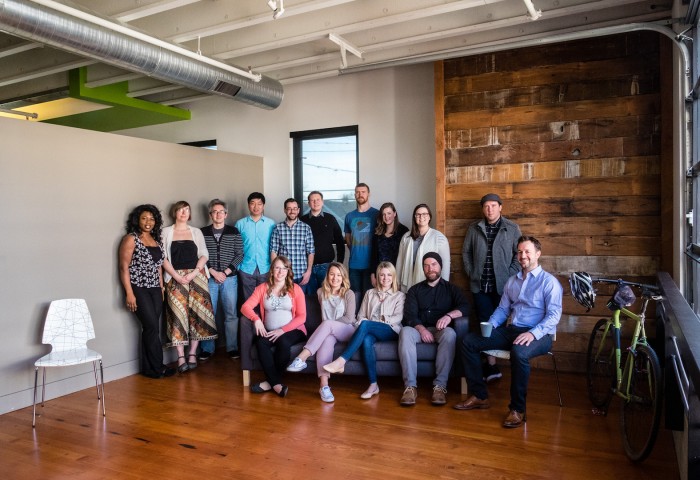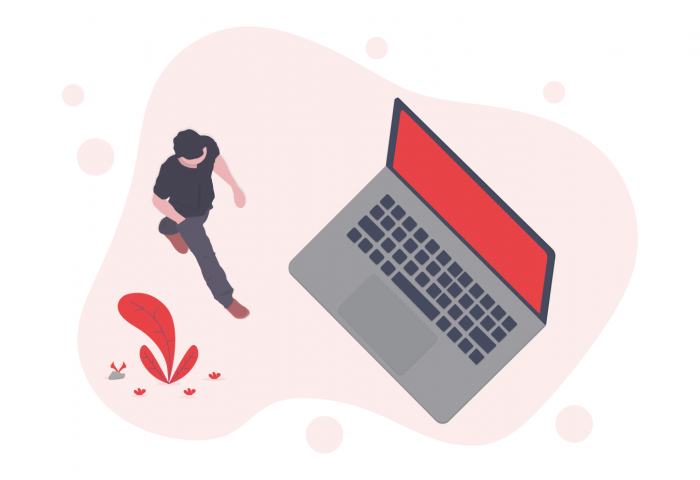Tortuga’s backpacks were designed with the company’s mission in mind: “live, work, and travel on your terms.” As we found out from Taylor Coil, who manages the company’s marketing efforts, Tortuga’s remote team embraces the very same values.
Tell us about yourself.
I run Tortuga’s marketing and have been here for about a year. Before Tortuga, I worked in startup land and disliked the culture. I’ve always been skeptical of rigid hours, high stress, and working from an office… but also thought my skepticism was incongruous with having a successful career. I joined Tortuga not just because it’s a remote team and I can work from anywhere in the world (and I do: I’ve lived in and worked from 12 countries this year) but because of the philosophy behind the company. We live, work, and travel on our terms and make products to enable others to do the same. That mission is why I work at Tortuga.
How many employees and contractors do you have?
10ish.
Please tell us about the importance of location independence at your company.
Location independence is a result of following our own mission and tagline: On Your Terms. For us, that philosophy applies to work, as well as life. We flip the system on its head. Work doesn’t dictate where, how, or when we live. It’s the other way around.
Did you start with the intention of having a distributed or nomadic team? If not, when did you decide to support people working remotely?
Tortuga started as a remote team by accident. Our co-founders, Fred and Jeremy, lived in different cities while building the company initially. They never had an office to go to, and never felt the need to start one. That mentality remained as our team grew. Location has never been a factor for us.
Fred, our cofounder, wrote more about that here.
What’s the upside that comes with not having a central location or office?
Everyone on our team has the freedom to design the lives we want to live. Some of us change location (even continents) frequently, and some of us don’t. It’s completely up to individual preference. That upside is non-negotiable for Tortuga.
Are there important non-office workspaces in the history of building your company—a favorite coffee shop, bar or similar space?
We get together twice a year somewhere exciting (most recently: Lisbon, Portugal) and all stay in one Airbnb. We make big decisions, bond, and have company-wide brainstorms in those Airbnbs, and each one has a special place in our hearts.

The Tortuga team in Lisbon
What % of your company regularly works remotely?
100%.
Any advice or best practices for supporting the work styles of your teammates from a distance?
For us, it comes down to hiring the right people and trusting each other. We don’t expect immediate responses to anything, or for our teammates to be online at certain hours (except for the rare Skype call). We’re patient with each other and trust that the team will do their jobs well.
What types of places do your teammates choose to work from when remote?
Most of us work from home or from coworking spaces. Occasionally someone will post up in a coffee shop, but that tends to be the exception on our team.
What qualities do you look for when hiring for a distributed team?
Remote teams have no choice but to hire self-starters. It’s crucial when nobody’s looking over your shoulder, you don’t have set hours, and the CEO will have no idea if you worked 20 hours this week or 60.
We also look for people who are excited about working remotely. It’s a perk that also serves as a cue for whether or not a potential teammate believes in the “on your terms” philosophy.
You’ve built a great product that helps the distributed workforce at large. Why did you choose to do that?
One of our core values is to “scratch our own itch.” We do that by creating products that enable our team and our customers to live on their terms. The remote workforce is part of that.
What are your thoughts on Workfrom’s role in the way work is getting done—now and in the future?
It can be frustrating to figure out how to function in a new city, much less find a place to work. Workfrom helps alleviate the logistics of WHERE so that work and travel can meld. It makes location independence that much easier.



Responses